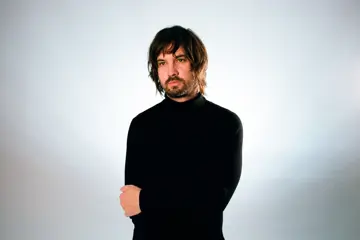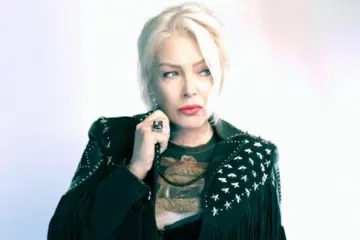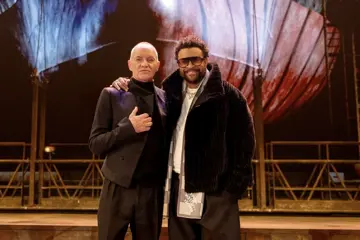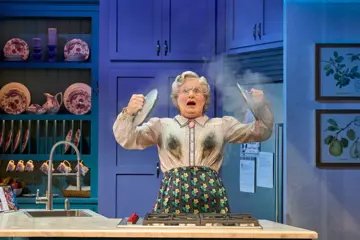Atlanta rapper/singer Lil Nas X (aka Montero Lamar Hill) has revived country rap with his mega-hit Old Town Road (I Got The Horses In The Back). Yes, country-fusion is in vogue… again. Even Diplo, a serial self-reinventor, has leapt on the bandwagon, introducing a country music stream with the jaunty So Long (featuring Cam) under his 'real' name, Thomas Wesley.
Yet the response to Old Town Road has prompted a discussion about the erasure of black artists from the country and western canon and how the music industry perpetuates cultural segregation. In fact, in the same way that black auteurs have questioned rigid – and racially-coded – R&B and hip hop formats, they are defying the very binarism between 'urban' and 'country' music. Crucially, streaming platforms have rendered genre classifications increasingly mutable, radio now lagging. This is the era of hyper-hybridisation.
A Horse Song With No Genre: Is Old Town Road Country Or Rap?
Lil Nas X laid down the country trap Old Town Road after leasing the beat from Dutch producer YoungKio's online store – the track sampling the banjo sequence of 34 Ghosts IV, off Nine Inch Nails' instrumental LP Ghosts I-IV. The rapper, adept at harnessing social media, circulated his song in late 2018, tagging it 'country' on SoundCloud. Lil Nas X promoted Old Town Road on the TikTok video-sharing app, where it went viral in tandem with the cowboy-themed Yeehaw Challenge meme (his official 'visualiser' borrows from the Red Dead western video game franchise).
Nevertheless, while Old Town Road eventually debuted in the top 20 of Billboard's Hot Country Songs, it was controversially eliminated the following week for not being sufficiently 'country', according to a statement published by Rolling Stone. Ostensibly, Lil Nas X is using country signifiers rather than instrumentation. However, pundits speculated that the decision was racial (which Billboard denied). Lil Nas X told Time that Old Town Road should be eligible for both the country and R&B/hip hop charts. "The song is country trap. It's not one, it's not the other. It's both. It should be on both."
Don't miss a beat with our FREE daily newsletter
In the meantime, the buzz led to Lil Nas X signing to Columbia. Old Town Road has since topped the Billboard Hot 100 and, here in Australia, the ARIA Singles chart. Lil Nas X has aired remixes with input from Billy Ray Cyrus – the Achy Breaky Heart hitmaker proclaiming him a fellow "outlaw" on Twitter – and Diplo. He's touted another with Young Thug, the OG country trapper. Lil Nas X and Cyrus joined Diplo to perform Old Town Road – Remix when he DJed after hours at Stagecoach Festival, Coachella's country 'sister', the other weekend. It was Lil Nas X's inaugural live show.
Lil Nas X does have his hip hop haters. The Harlem MC Dave East dissed Old Town Road on Instagram Live: "That fuckin' Old Town Road shit is fuckin' wack," he ripped. "I don't know what the fuck is going on with hip hop; with rap but… I ain't no hater, man, but that shit is wack with a cape on it. It's super-wack!" Essentially, Lil Nas X expresses a desire for freedom in the song that parallels both the #carefreeblackboy movement and the recent celebration of black cowboy/cowgirl aesthetics (epitomised by The Yee-Haw Agenda). He plays with hyper-masculine archetypes in hip hop and country. Lil Nas X's country trap counterpoints cloud rap's nihilism and the cerebral art-rap and avant 'n' B alike.
The Tea On Beyonce's Daddy Lessons
Of course, three years ago Beyonce inadvertently exposed the country music scene's latent racism. The Houstonian embraced country on her spectacular visual album LEMONADE with the down-home ballad Daddy Lessons, having previously released 2006's comparatively MOR hit Irreplaceable.
Alas, country fans raged on social media when a woke Beyonce symbolically performed Daddy Lessons at the 50th Country Music Association Awards alongside the Dixie Chicks – themselves shunned by conservative audiences because lead vocalist Natalie Maines lambasted President George W Bush over the looming invasion of Iraq in 2003. (A Rolling Stone op-ed argued that this latest flashpoint revealed the white indignation in America that brought Donald Trump into office.)
In the interim, Beyonce's Team submitted Daddy Lessons to The Recording Academy for consideration in the Grammy Awards' country categories, but it was dismissed (she got a nomination in the rock arena for her stompin' Don't Hurt Yourself with Jack White). Queen Bey conspicuously didn't include Daddy Lessons in her 2018 Coachella setlist.
The Black Roots Of Country
The world of country music is often perceived as a white space, linked to the racist American South. But black musicians have been pivotal to the idiom's evolution. The banjo – surely the instrument most identified with country – was invented by enslaved African people in the Caribbean, only for white performers to later co-opt it. Country originated as 'hillbilly music' in the South during the 1920s. The term was deemed pejorative of impoverished rural white folk. Indeed, the story of country is about race, class and capitalism.
In 1925, the Nashville, Tennessee radio station WSM commenced broadcasting a weekly barn dance show – now an institution known as The Grand Ole Opry. The harmonica-player DeFord Bailey would be its first black star. In the '50s, country developed into a big business, Nashville the capital. Still, marketing aside, there was an apparent fluidity between gospel, blues, jazz, country, R&B, soul and rock.
Some R&B artists made country. The pioneering Ray Charles reinterpreted Hank Snow's I'm Moving On as early as 1959. Alabama's Candi Staton is today associated with gospel, soul and disco. But, in the late '60s, she launched herself as a country soul vocalist, re-recording Tammy Wynette's Stand By Your Man. Tina Turner, the Queen of Rock'n'Roll, also had country in her repertoire. Turner's 1974 debut solo album was the (presently obscure) covers set Tina Turns The Country On! – with an Olivia Newton-John song. Charley Pride emerged as a legit country icon in the late '60s. He'd be the first black act to win a Grammy in a country music category in 1973. The Pointer Sisters received a similar genre Grammy for 1974's self-penned single Fairytale – which Elvis Presley covered. The R&B vocal group then dedicated themselves to R&B, funk and dance – Fairytale curiously left off their 'Greatest Hits' collections. Country resonated globally with people of colour. These days, Australia has a tradition of Indigenous country stars, from Jimmy Little to Troy Cassar-Daley.
The country establishment had its purists, and defensive types, early on – the Country Music Association reputedly formed in reaction to the surging rock'n'roll. But, generally, over time music became more stratified – and this was invariably along racial lines. Country was gradually stigmatised, being equated with rednecks. In 1976, Cleveland soul legend Bobby Womack – whose It's All Over Now with The Valentinos was famously covered by The Rolling Stones – cut the gritty BW Goes C&W, his challenge to the mellow Charley Pride; black cowboys on the sleeve. It flopped. Mind, a decade prior, Womack faced public opprobrium for marrying Barbara Campbell, the widow of his mentor Sam Cooke. At least Stateside, Womack's fortunes never fully recovered.
Urban Cowboys: The New Crossover
The '80s ushered in renewed cross-cultural exchange. The smooth Texan Kenny Rogers enjoyed one of his biggest mainstream hits with Lady, composed by Lionel Richie. It cracked both the US country and R&B charts – Rogers afforded a liberty denied to Lil Nas X. Prince gave Rogers You're My Love. (The Purple One's own version, discovered in Paisley Park's vaults, is slated to appear on the upcoming compilation Originals.) Whitney Houston recorded an epochal gospel-soul rendition of Dolly Parton's vintage I Will Always Love You for The Bodyguard OST, the song recommended to her by co-star Kevin Costner. Beyonce has sung the now R&B standard live.
In the '90s, acoustic R&B pervaded quiet storm – and pop. Detroit's Tony Rich, initially rostered to Babyface's LaFace Records in 'Hotlanta' as an in-house songwriter/producer, orientated the style in a country direction. Working as The Tony Rich Project, he premiered with 1996's acclaimed album Words– its lead single Nobody Knows. Rich scored a Grammy, albeit predictably in the R&B field. Now based in Canberra with a young family, he's continued to be active across the adult contemporary spectrum, last issuing 2017's country 'n' b Encaustic.
Country Grammar: The Rise Of Country Rap
More than country, urban music transcended geography in the US. Through the '90s, Southern rappers disrupted the regional domination of the East and West Coasts in hip hop. Significantly, they accentuated their twang. This paved a path for the Midwest's artists. Detroit's Kid Rock godfathered country rap (and bro-country) with the raucous Cowboy off his 1998 breakthrough album, Devil Without A Cause. He rapped about setting himself up as a pimp in California, mythologising his supposed 'white trash' background ("I ain't straight outta Compton/I'm straight out the trailer") – despite hailing from an affluent family. Georgia's credibly blue-collar Bubba Sparxxx put an innovative spin on the nascent country rap in the early 2000s, collaborating extensively with Timbaland. St Louis' Nelly, a trailblazing rapper/singer, then furthered the lowkey country vibe of his bumpin' single Country Grammar (Hot Shit) by duetting with Tim McGraw on the sincere Over And Over – an Australian #1.
Paradoxically, country has long simultaneously accommodated white regressive politics and rebellion – Cyrus' 'outlaws'. But, in replicating that, country rap thwarted its crossover appeal – urban listeners suss on it. Kid Rock estranged himself from African-Americans by parading the Confederate flag – a white supremacist symbol. He endorsed Trump, becoming his celebrity golf buddy. Texas' Cowboy Troy – a formative black country rapper who revels in the polarising 'hick-hop' descriptor – is likewise a Republican. He participated in Trump's Presidential inauguration festivities. As such, country rap is overdue for a revolution.
The Gamblers: Disrupting Country
Beginning in the '80s, country attracted creatives from divergent genres intent on experimenting with, or transgressing, it. Many a pop superstar has diverted into country – Madonna donning a cowgirl hat for 2000's rhinestone-studded Music. Notably, electronic dance music acts have tapped into country to be novel or kitsch or simply to troll.
The UK New Wavers Haysi Fantayzee arguably augured country rap in 1982 with their bizarre cowpunk single, John Wayne Is Big Leggy (Jeremy Healy became a super-DJ). The KLF, acid house mavericks, persuaded a joyfully game Tammy Wynette to cut vocals for their hip-house banger Justified & Ancient (Stand By The JAMS) – massive in 1991. The Grid issued the banjotronica Swamp Thing. Fast forward to 2013 and the Swedish DJ/producer Avicii previewed his neoteric countrified EDM at Ultra Music Festival – and was dragged online. ("My album [True] is certainly not 'country'," he insisted on Facebook.) Luckily, Avicii's Wake Me Up (featuring the neo-soulster Aloe Blacc) was a huge hit.
In wider urban music, country tropes would be reclaimed, subverted and ironised. The Fugees conceived Cowboys as a critique of gun violence for their landmark album The Score – complete with yodelling. The role of the Fugees' Wyclef Jean in country rap has actually been consistently neglected. He flipped the '80s To All The Girls I've Loved Before, Julio Iglesias' duet with Willie Nelson, (itself an Albert Hammond remake), for 1997's To All The Girls on his solo LP The Carnival. Later, Jean recruited Kenny Rogers for a freestyle version of The Gambler. He then showed his affinity for country in writing the orchestrated epic Gone Till November – peak countrypolitan. Jean intuited that hip hop and country share a narrative bent.
The other aspect that country and R&B/hip hop have in common is a preoccupation with 'authenticity' – as Lil Nas X knows. For MCs, 'keeping it real' is performative. Ironically, country has allowed urban acts to disengage – and fantasise. In 1997, New York's bohemian Imani Coppola unleashed an irreverent B-girl anthem Legend Of A Cowgirl – alt-R&B with a retro Donovan sample, big beats, and her own fiddle (Prince Paul remixed it). Pre-Kid Rock, Bone Thugs-n-Harmony's Cleveland collective Mo Thugs added clip-clops to G-funk with 1998's Ghetto Cowboy.
A decade on, that stylistic polymath Snoop Dogg united with Willie Nelson and Everlast for My Medicine, dedicating it to Johnny Cash ("a real American gangsta") and teasing, "Grand Ole Opry, here we come." In 2002, the Long Island MC Lady May connected with Blu Cantrell for Round Up – a lost hip hop feminist classic. The lavish video was inspired by the road movie Thelma & Louise, but offers a victorious ending (and comic "yee-haws").
The new country trap is indebted to this spirit. The Atlantan Young Thug, a Wyclef Jean Stan, heralded the current country rap boom with 2017's subliminal mixtape, BEAUTIFUL THUGGER GIRLS – its artwork depicting him strumming an acoustic guitar. More tongue-in-cheek, Lil Tracy anticipated LilNas X's genre non-conformity. Last year he dropped the parodic Like A Farmer, Lil Uzi Vert bouncing on a remix.
Hey Bro: Country In The Post-Genre Era
With urban music acknowledged as the new pop, rising major label country stars inevitably leaned into it so as to maintain relevance. Always slick, Taylor Swift solicited Kendrick Lamar for a Bad Blood remix. Miley Cyrus, Billy's daughter, was accused of being a culture vulture, exploiting Southern hip hop with Bangerz before she pivoted back to country. Conversely, Tennessee R&B crooner Justin Timberlake was savaged for a foray into nostalgically apolitical Americana on Man Of The Woods, but he retained his old R&B producers Timbaland and The Neptunes (besides, Cry Me A River was a country song masquerading as R&B). Timberlake sang with Southern rocker Chris Stapleton on Say Something – very Tony Rich.
At any rate, hip hop and R&B have impacted on country, as has EDM. Florida Georgia Line – high-profile Lil Nas X supporters – typify bro-country: hedonistic hoedown fare, also hated by traditionalists. The duo released a mega remix of their 2012 break-out Cruise with Nelly (guided by Jason Nevins of It's Like That fame). Florida Georgia Line have sustained that reciprocity with urban players – Jason Derulo guesting on February's album, Can't Say I Ain't Country.
Today, country has opened up with progressive figures such as Kacey Musgraves and Sturgill Simpson. More importantly, there are prominent African-American stars like Darius Rucker, sometime frontman of Hootie & The Blowfish, Kane Brown and Jimmie Allen. Already this year Khalid has disseminated a remix of his Saturday Nights with Brown and accompanied him at the Academy Of Country Music Awards. He duets with former R&B princess P!nk on Hurts 2B Human, the country-flavoured title-track of her new album. Meanwhile, Lil Nas X, determined not to be a flash-in-the-pan, is planning his album – and dropping hints about a rock single. Regardless, though country-fusion may be on-trend, it's no fad.















